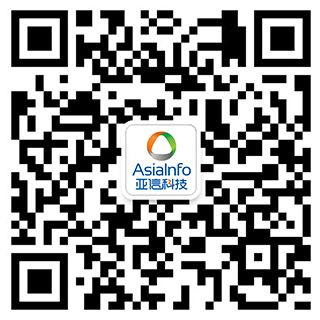On July 21, the White Paper on Urban Digital Transformation (hereinafter referred to as the White Paper), led by AsiaInfo and jointly compiled by experts from the Industrial Planning Institute of the China Academy of Information and Communications Technology (hereinafter referred to as CAICT), was released in Beijing. The white paper focuses on issues such as refined urban operation and sustainable development, and provides systematic insights and judgments from three aspects: trends, capabilities, and practices, and provides a path guide to promote high-quality urban development by relying on digital operations.
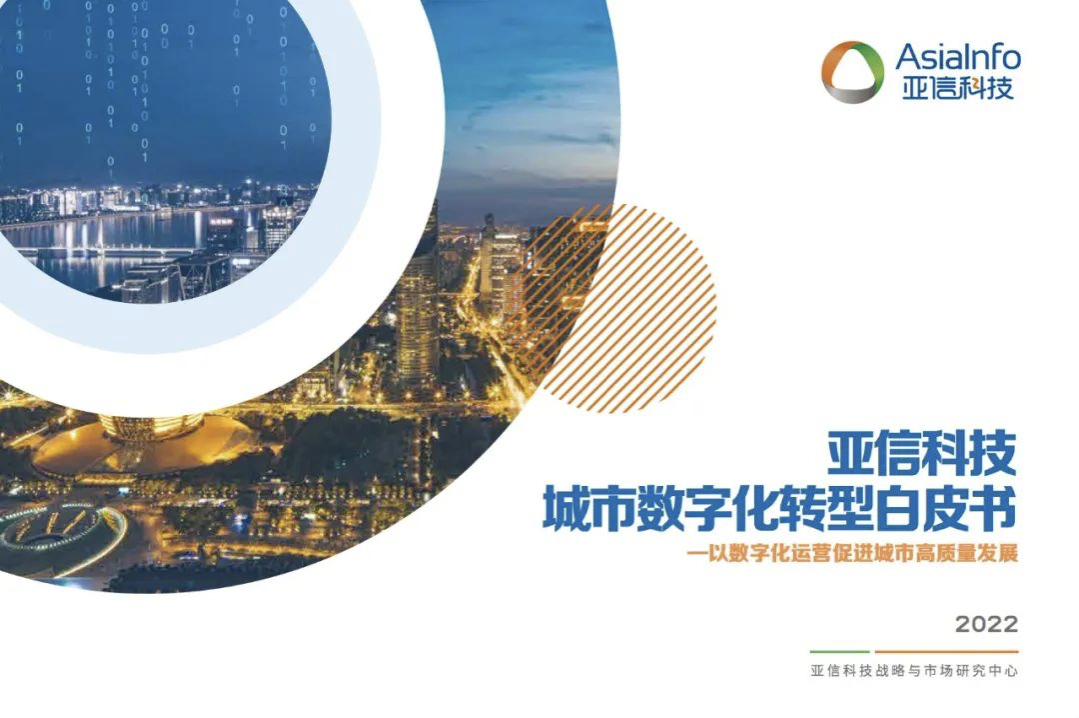
“Digital operation” is the key element of high-quality urban development
Since the reform and opening up, China has experienced the largest urbanization process in the world. During the “14th Five-Year Plan” period, the urbanization rate will increase to 65%, which will improve citizens’ living experience, government service capabilities, and urban governance. Promoting industrial transformation and upgrading and Green and low-carbon development will become the focus of urban development at this stage.

Figure: The connotation and characteristics of urban digital transformation
The White Paper introduces the background, connotation, mechanism, and development direction of China’s urban digital transformation, that is, driven by the core value of “people-oriented”, it will gradually move towards the goal of “optimizing government with data, promoting production with cities, advancing in depth, regional linkage, integration of data and intelligence, value operation, and green and low carbon".
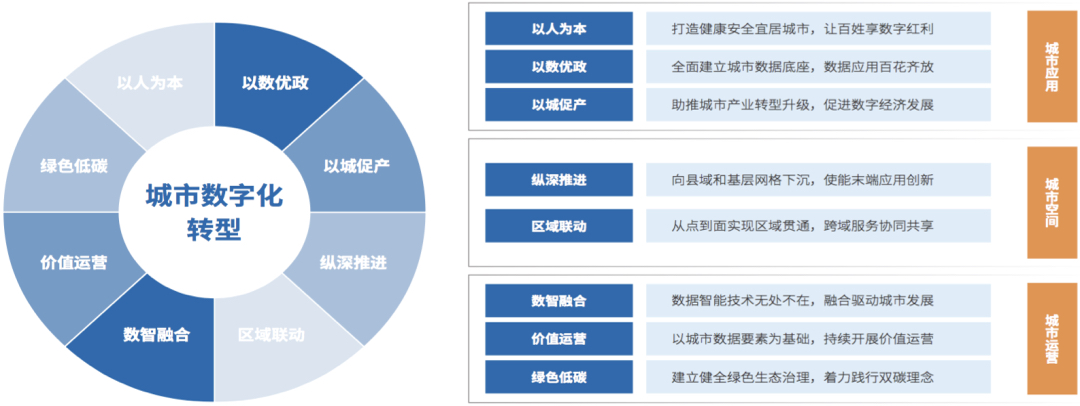
Figure: Eight trends in urban digital transformation
The White Paper proposes an innovative digital operation model based on data integration, starting from application scenarios and focusing on value transformation. At the same time, based on AsiaInfo’s capabilities in consulting planning, product R&D, system integration, data operation, etc. and its rich business practices, build "1+N+1" (one city digital intelligence brain + N scenario-based applications + one set of consulting planning, construction integration and operation and maintenance professional services) urban digital operation capability framework, and strive to more effectively help city managers to carry out value operations and promote urban transformation.
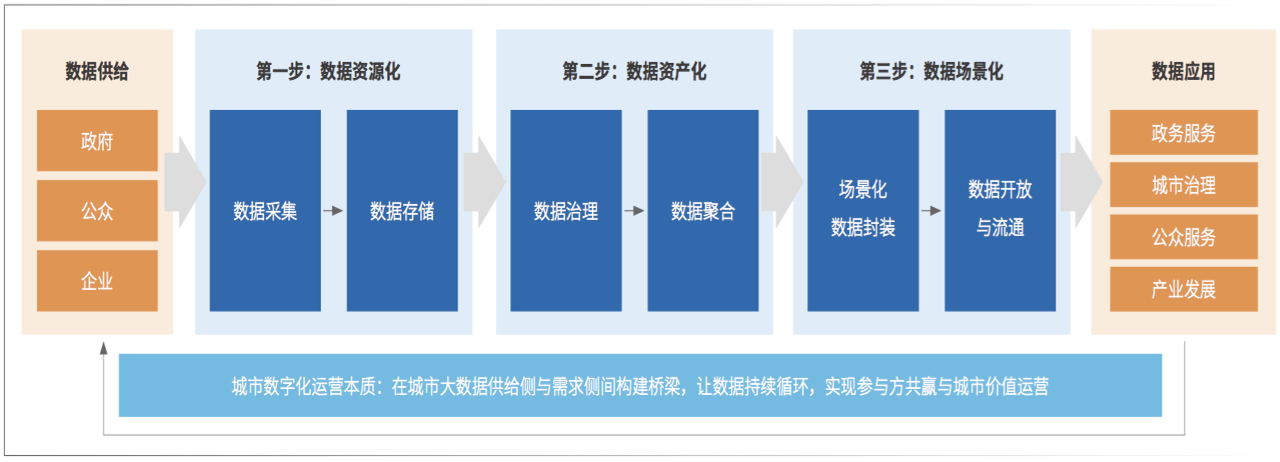
Figure: The key link of urban digital operation
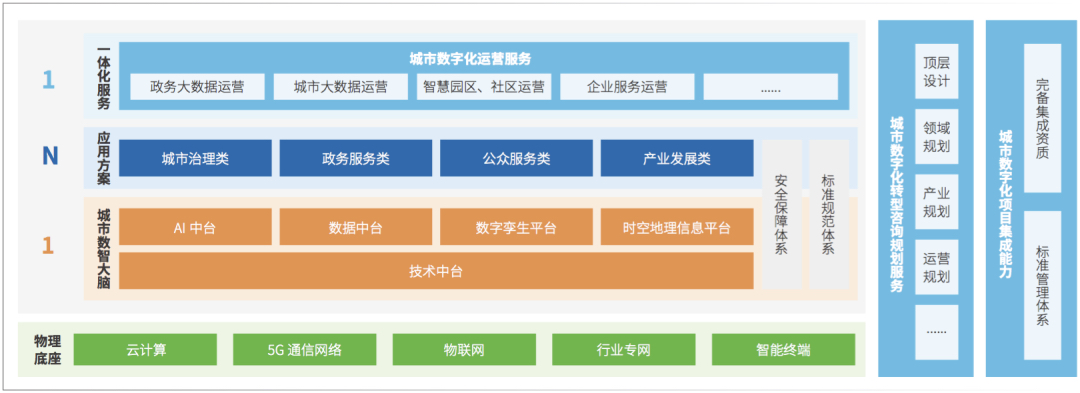
Figure: AsiaInfo’s “1+N+1” urban digital operation capability architecture
The White Paper believes that “application scenarios” are the starting point and end point of the digital operation of smart cities, and an important carrier to promote the transformation of urban service value. AsiaInfo has created a series of digital and intelligent application solutions for four application scenarios of urban governance, government services, public services, and industrial development, helping cities to discover the value of factors, clarify transformation needs, and create value gains in practice.
Abundant Cases, Implementing Policies Based on Regions, Presenting the Exploration and Practice of Urban Transformation in an All-round Way
In the context of transformation, both city managers and ordinary citizens will participate in this large-scale social practice, and hundreds of industries will benefit from it.
The White Paper focuses on different fields and selects practical cases in nearly 30 fields including smart transportation, smart urban management, smart fire protection, smart community, smart emergency response; government management, smart party building, smart justice, smart tax control, population governance; smart medical care, smart education, smart cultural tourism; comprehensive energy, low-carbon parks, enterprise services, digital villages, smart logistics, and smart buildings. From project background to application results, the White Paper systematically present all aspects of urban digital transformation, establishing a sample of high-quality development example.
Sun Luyao, deputy director of the Strategic Research Department of the Institute of Industry and Planning of CAICT, believes that the process of urban digital transformation is full of opportunities and challenges. It is necessary to think from a long-term perspective, plan the layout with “value operation”, and promote exploration and practice in an integrated manner.
As a leading “digital intelligence full-stack capability provider”, AsiaInfo will be based on the digital transformation needs of cities at all levels, relying on the “1+N+1” urban digital transformation capability framework, focusing on the four major areas including urban governance, government services, public services, and industrial development, optimize the digital and intelligent product system, create digital and intelligent solutions close to the scene, and continue to help the digital transformation and high-quality development of China’s new smart cities.







